Maizena’s missing micronutrients

Executive summary
Food fortification plays an important role in addressing micronutrient deficiencies and tackling malnutrition. Fortification can take place through mandatory programmes or market-driven, voluntary initiatives – both approaches play important and complementary roles. Multibillion-dollar business Unilever, which makes 23% of its turnover from food products, is vocal about its commitment to the Sustainable Development Goals, particularly those focused on zero hunger and good health and wellbeing. Unilever currently ranks second in the Access to Nutrition Index, which praises the company for its global commitments and ‘clear focus on health and nutrition’.
This paper more closely examines Unilever’s voluntary initiative on fortification in Latin America. Unilever states that the cornflour products it sells in the region are fortified with zinc, vitamin A and ‘other key micronutrients’. The Changing Markets Foundation used the case study of Maizena, the well-known brand of cornflour Unilever sells in Mexico, to investigate these claims. Cornflour is used, among other things, to make atole in Mexico, a popular and traditional warm drink. Our study analysed the information available on the Maizena Mexico website and Maizena product labels, and tested 84 samples of Maizena products readily available in Mexico.
The findings show a glaring lack of consistency between Unilever’s commitments and its business practice when it comes to fortification. The company is not fortifying its Maizena Natural product in Mexico, despite claims that all its cornflour products in Latin America are fortified. Micronutrients are only added to its flavoured – more processed and less healthy – atole mixes. This raises an important question: Why, in a country in which people suffer from well-evidenced micronutrient deficiencies, is Unilever’s basic Maizena product unfortified? Furthermore, test results revealed that the Maizena flavoured atole cornflour products available in Mexico do not appear to contain the levels of micronutrients displayed on their labels, especially iron and zinc. This discrepancy suggests that, in Mexico, Unilever is not fortifying its products according to its own commitments. The company’s public communications on fortification show it is well aware it plays a vital role in the nutritional intake of its customers, but to deliver on its promises of better nutrition, Unilever must ensure its products live up to their claims and are not misleading consumers. These findings also raise important questions about the effectiveness of voluntary industry commitments that are not supported by national, statutory regulations or standards.
PARTNERS


You might also like...

The grain of truth: industry compliance on flour fortification in Mexico
This report calls on the new government in Mexico to take a fresh look at the actions of the food industry and take corrective action to guarantee that Mexican people have access to essential nutrients throu...

Cereal offender: is Kellogg’s breaking its breakfast promises?
This report looks at the behaviour of Kellogg’s, the leading company in terms of breakfast cereal sales in Mexico, where micronutrient deficiencies are a major public health problem including amongst children.

Sorting the Wheat from the Chaff: Food Fortification in Mexico
In this report, we delve deeper into the issue of food fortification in Mexico, a country with a double burden of malnutrition. While Mexico has one of the highest obesity rates in the world, certain micronu...